The Authority has a critical Advocacy role which seeks to promote the well-being of all children including citizens, residents, non-residents and refugees in Trinidad and Tobago. This involves actions geared towards promoting the development of a child-friendly society, influencing policy and effecting positive change for the children in Trinidad and Tobago. The Authority’s goals also revolve around speaking out on behalf of children and ultimately empowering them to speak out on their own behalf. In order to achieve this, the organisation seeks to ensure that persons understand the problems children face, empower them to effectively tackle these problems, and equip children with the tools needed to express their views.
Human rights are the basic elements that humans need in order to live with dignity. They are rights which are assured simply by virtue of being human and are meant to ensure that individuals develop and reach their potential. Human rights include, but are not limited to, the right to food, housing, health care, and the right to self-expression, hold religious beliefs, and be free from violence and abuse.
Children’s Rights are human rights specifically adapted to the child because they take into account children’s vulnerabilities, specificities, age-appropriate needs and their special need for protection.
Trinidad and Tobago has signed and ratified many international conventions promoting the rights of children, including:
- The UN Convention on the Rights of the Child (1989)
- The Declaration on the Survival, Protection and Development of Children, World Summit for Children (1990)
- The Millennium Development Goals (2000)
- A World Fit for Children (2002)
Consistent with these principles, a Package of Children’s Legislation was also developed with the Children’s Authority at its center.
The UN Convention on the Rights of the Child (UNCRC Child-Friendly Language).
The UN Convention on the Rights of the Child (CRC) was adopted by the UN General Assembly in 1989 at the end of a process that had begun in 1979 with the International Year of the Child. It seeks to bring together the children’s rights articulated in several other international conventions while also expressly identifying unique needs of children that had previously gone unaddressed. The CRC seeks to foster a new mind-set as it relates to children whereby children are no longer viewed as objects of charity, but as social actors and active holders of their own rights and responsibilities appropriate to their age and level of development.
There are four guiding principles which underpin the CRC:
- Non Discrimination (Article 2) – State Parties undertake to respect and ensure that the rights identified in the CRC apply to each child within their jurisdiction without discrimination of any kind. Therefore every child should have equal access to services and protections.
- The Best Interests of the Child (Article 3) – The best interests of children must be the primary concern in any decision making that concerns children. This applies to all actions concerning children, whether taken by the State, parents, public or private social welfare institutions, courts of law, administrative authorities or legislative bodies. It therefore means that laws, policies, administrative decisions, resource allocations and other measures undertaken by countries must be formulated based on the impact they will have on children.
- The Right to Life, Survival and Development (Article 6) – This implies that a child’s life is to be protected in all circumstances. These are rights to access the resources, skills and contributions necessary for the survival and full development of the child. The child’s right to survival and development include for example, the right to health, nutrition, shelter, education, leisure, gender equality, and information about their rights. Also, it should be noted that it would address the needs of refugee children, children with disabilities and children of minority or indigenous groups.
- Respect for the Views of the Child (Article 12) – This principle means that when decisions are being taken concerning children, the child has a right to say what he/she thinks should happen, and these views should be heard and respected.
The substantive rights in the Convention can be grouped into three categories: Protection, Provision, and Participation, sometimes called the 3Ps.
Rights to protection. For example these include protection from:
- All forms of violence (article 19)
- Child labour and sexual exploitation (articles 32 & 34)
- Drug Abuse (article 33).
Rights to provision. For example, children have the right to:
- Education (article 28)
- Leisure, play and culture (article 31)
- Health care (article 24) and
- Adequate standard of living (article 27).
Rights of participation. These articles include children’s rights to:
- Respect for the views of the child (article 12)
- Freedom of expression (article 13)
- Freedom of thought, conscience, and religion (article 14)
- Freedom of Association (article 15)
One of the myths associated with the promotion of children’s rights is the belief that promoting children’s rights leads to a simultaneous limitation on parents’ rights, or that the promotion of children’s rights is synonymous with children “getting their own way”. However, this is an erroneous perception since within the text of the Convention on the Rights of the Child there is provision for the parents’ right to provide parental guidance. Consequently, the Convention does not take responsibility for children away from their parents. In fact, parents maintain their right to direct and guide their children. Additionally, it is envisioned that parents will assist with the protection of their children’s rights until the children are old enough to make their own decisions.
Article 5 of the Convention on the Rights of the Child says:
“States Parties shall respect the responsibilities, rights and duties of parents or, where applicable, the members of the extended family or community as provided for by local custom, legal guardians or other persons legally responsible for the child, to provide in a manner consistent with the evolving capacities of the child, appropriate direction and guidance in the exercise by the child of the rights recognised in the present Convention.”
Parents therefore have the right to make decisions about how they raise their children, without interference, unless there are very good reasons and the child’s wellbeing is at risk.
Article 18 of the Convention says:
“States Parties shall use their best efforts to ensure recognition of the principle that both parents have common responsibilities for the upbringing and development of the child. Parents or, as the case may be, legal guardians, have the primary responsibility for the upbringing and development of the child. The best interests of the child will be their basic concern.
For the purpose of guaranteeing and promoting the rights set forth in the present Convention, States Parties shall render appropriate assistance to parents and legal guardians in the performance of their child-rearing responsibilities and shall ensure the development of institutions, facilities and services for the care of children.
States Parties shall take all appropriate measures to ensure that children of working parents have the right to benefit from child-care services and facilities for which they are eligible.”
Thus, there is a clear recognition within the text of the Convention that parents have primary responsibility for the child’s care and development and that States are to provide assistance to parents in the performance of their duties and responsibilities towards their children.
Additionally, there are other provisions within the Convention on the Rights of the Child which acknowledge the role of parents in ensuring children’s rights are secured. These include:
Article 9 – this addresses children’s rights to live with their parents and to stay in contact with their parents (unless it is not in the best interests of the child).
Article 10 – this addresses the need for family reunification so that family members who live in different countries should be allowed to move between those countries so that parents and children can remain in contact.
Even within the Children’s Authority Act, Chap 46:10, at section 6 of the Act, there is an express acknowledgment of parents’ right to be heard and their right to a fair hearing, particularly as concerns child protection proceedings. Therefore, in proceedings being heard as it relates to the care and protection of a child, parents will be given an opportunity to present their views.
Points to Note:
- Both parents and children have rights and responsibilities
- As the parent you have the right to make decisions as to your child’s upbringing which would include the right to set reasonable limits
- Children having rights is not synonymous with you losing yours
- Parents play an integral role in ensuring children learn to use their rights properly
- In matters concerning your children, you have the right to express your views and you also have the right to a fair hearing
